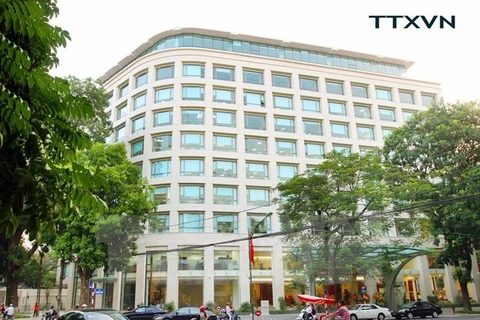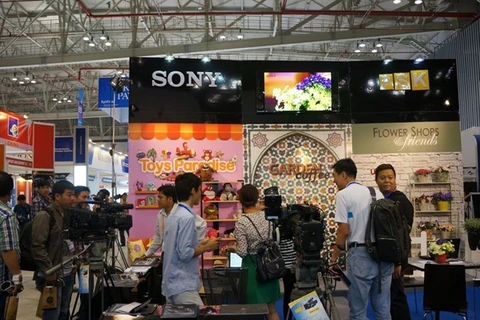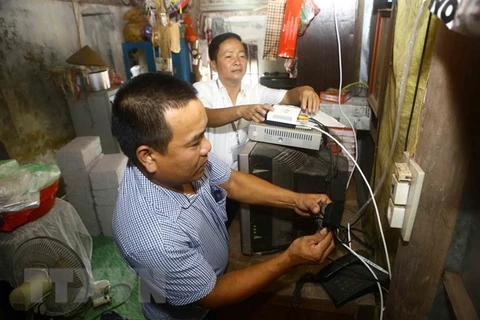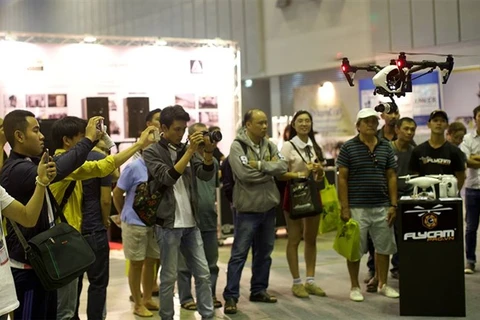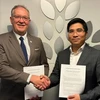 Frequency management activity of a station of the Authority of Radio Frequency Management (Photo: VNA)
Frequency management activity of a station of the Authority of Radio Frequency Management (Photo: VNA) Da Nang (VNA) – Vietnam has actively participated in forums and meetings of the Asia-Pacific Telecommunity (APT) Wireless Group, heard the 23rd meeting of the APT Wireless Group (AWG-23) which opened in the central city of Da Nang on April 9.
The event, runs until April 13, drew the participation of regional and international experts in wireless communications from APT members and leading businesses such as Vietnam Post and Telecommunications, Viettel Military Industry and Telecoms Group, GSMA, Ericsson, Huawei and Samsung, among others.
Vietnam hosting AWG meetings this time also affirmed the country’s increasing position in frequency management and wireless communication.
[Da Nang to host Telecommunity meeting]
Speaking at the event, Deputy Minister of Information and Communications Pham Hong Hai said the demand of mobile communication can be seen through the continuing development of telecommunication and mobile internet infrastructure.
The wireless applications and technologies such as ITS, wireless power transmission, railway radio communication system, and unmanned aircraft are emerging as well. It all requires policy makers to prepare relevant policies, and allocate additional spectrum resources and operators to prepare for this development.
Hai also highly appreciated the key contribution of AWG to the growth of radio communications by developing the best practices and recommendations for the use of spectrum and harmonizing mobile broadband and emerging technologies.
He expressed his hope that the AWG-23 will offer solutions to current challenges and create optimal conditions for the effective implementation of wireless systems.
Results delivered at the AWG meetings over the past years had been widely used not just in the local region, but on a global platform as well. For example, APT’s plan for the 700 MHz band, which was used for television technology, was then applied to broadband radio among European and African countries.
The AWG meetings are expected to contribute to the growth of radio communications by developing the best practices and recommendations for the use of spectrum and harmonizing mobile broadband and emerging technologies, he said.
Many significant issues on frequency management, including utilisation of shared broadband and research on wireless technologies’ application, are also on the agenda.-VNA
